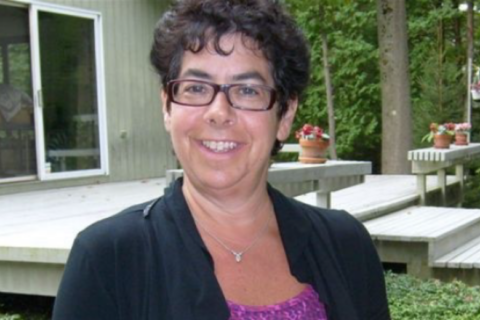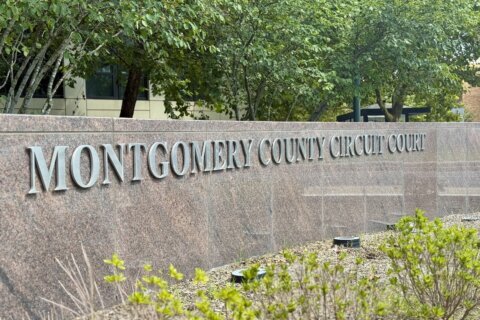For Montgomery County Executive Marc Elrich, the antisemitic graffiti found in Maryland on Monday morning and over the weekend in D.C. were “part of growing up in America,” and he said that should people push back against the message and these displays of hate.
“People would tell me I was going to burn in hell because I was a Jew. And if I didn’t accept Jesus Christ, I was going to hell. The ‘burning in hell’ was the stuff that was alarming,” Marc Elrich told WTOP.
Elrich said he has heard antisemitic comments throughout his life, and it even happened to his own daughter when she was about 7 or 8 years old.
“This kind of stuff starts at an early age,” he said.
Earlier this month, the county council passed a resolution in an effort to combat antisemitism, which, according to the resolution’s sponsor council member Andrew Friedson, has been on the rise.
“Here in our inclusive, welcoming community, 85% of religious bias incidents target Jews,” despite the fact that Jewish residents make up just 10% of the population, Friedson said when the resolution was passed.
Monday’s graffiti was the latest incident of hate speech targeting the Jewish community in the county. In August, antisemitic graffiti was also found in an area of the Bethesda Trolley Trail.
“We’ve had communities targeted by hate actions, hate violence, hate speech, exhibitions like what was done today,” Elrich said, adding that religious discrimination has “no place in modern society,” and people have to push back against it, including reporting racist and antisemitic incidents when they happen.
“[We need to] make them aware of the fact that this is still happening, and this doesn’t reflect the values of the vast majority of people who live in this county. And the people who think like this need to understand how small and isolated they are. They do not reflect common values of society,” Elrich said.
He added that the conversations about diversity and inclusion have helped make people feel more welcome in Montgomery County.
“I was speaking with somebody at the ambassadorial level from an Asian country, and he talked about how people from this country felt welcome here. And they felt like they could come here and be part of society and be safe here,” Elrich said.
The graffiti found on Monday is a reminder, however, that these beliefs still exist in the county.
“It’s an aberration, and it’s not as small as it should be,” Elrich said. “It’s really dark that you would think like that. I don’t know how a human being can divide up the world into religious beliefs that they like and religious beliefs that they hate … it’s one thing to disagree with the point of view. It’s quite another thing to extend that to hating the people who might be part of that.”
WTOP’s Kristi King contributed to this report.








